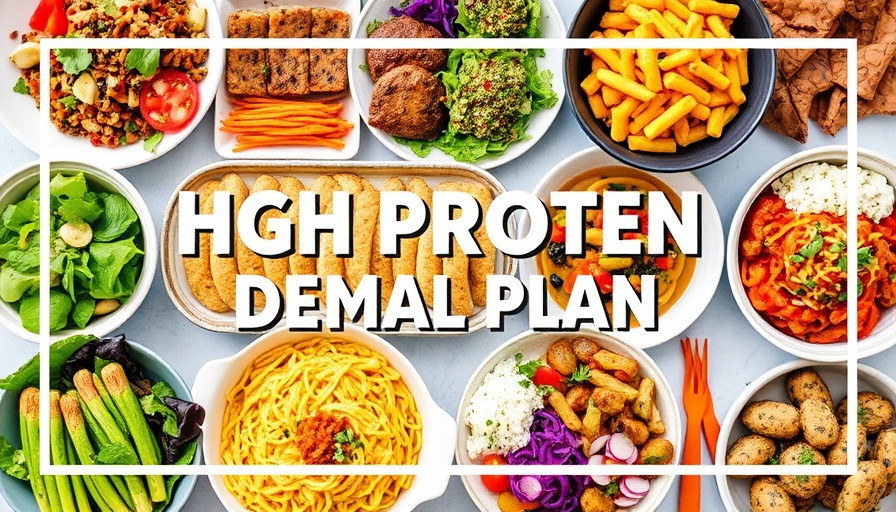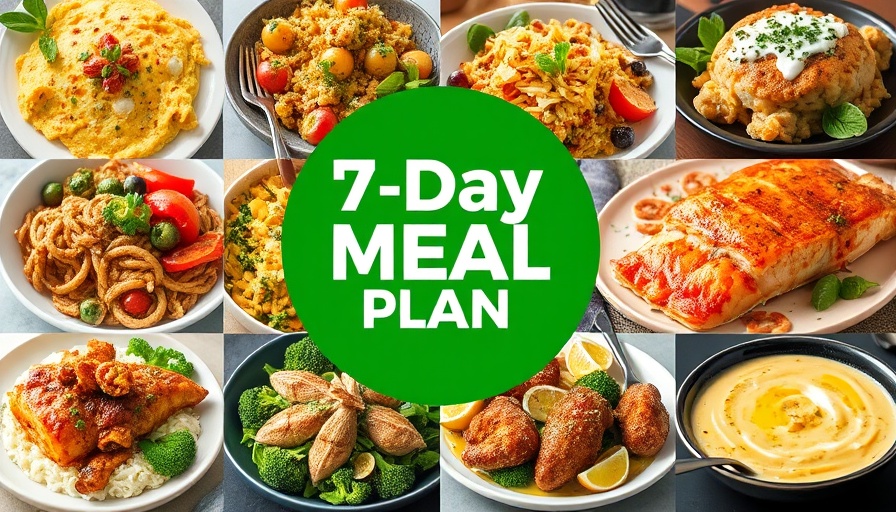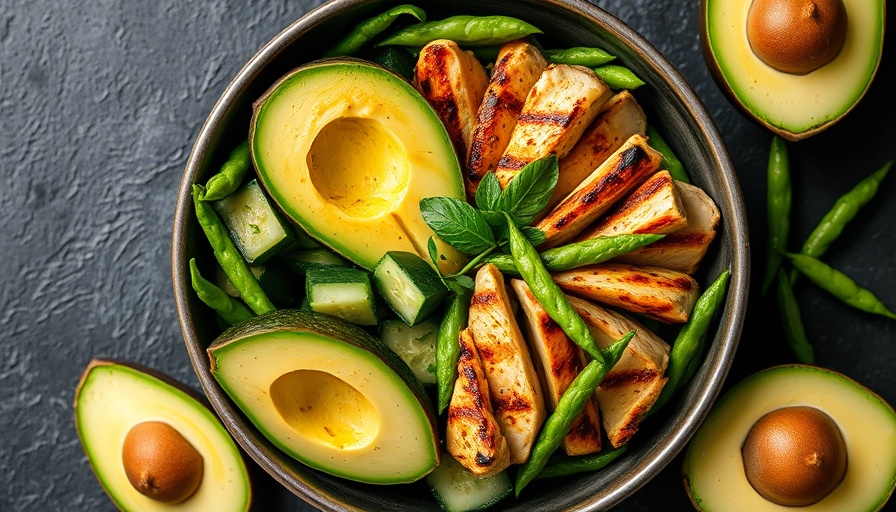
Unlocking the Power of Protein: Why You Should Consider a High-Protein Diet
When it comes to weight management and overall health, protein-rich foods stand out as key players. Embracing a high-protein diet can lead not only to effective weight loss but also to long-term improvements in metabolism and muscle health. For those considering transformative lifestyle changes, a week-long high-protein meal plan might be just what you need to kickstart your journey towards better health.
7-Day High Protein Diet Meal Plan: An Overview of Daily Meals
Starting with a clear framework can make a weight loss initiative feel more manageable. Here’s a sneak peek into a 7-day high-protein meal plan that emphasizes balanced nutrition:
- Day 1: Breakfast: Greek yogurt with berries; Lunch: Quinoa salad with chickpeas; Dinner: Grilled chicken with steamed broccoli.
- Day 2: Breakfast: Scrambled eggs with spinach; Lunch: Turkey wrap with lettuce; Dinner: Baked salmon with asparagus.
- Day 3: Breakfast: Smoothie with protein powder; Lunch: Lentil soup; Dinner: Stir-fry tofu with vegetables.
- Day 4: Breakfast: Cottage cheese with pineapple; Lunch: Grilled shrimp salad; Dinner: Beef stir fry with bell peppers.
- Day 5: Breakfast: Oatmeal with almond butter; Lunch: Chicken Caesar salad; Dinner: Stuffed peppers with quinoa.
- Day 6: Breakfast: Protein pancakes; Lunch: Black bean tacos; Dinner: Grilled pork tenderloin with sweet potatoes.
- Day 7: Breakfast: Chia seed pudding; Lunch: Egg salad; Dinner: Roast chicken with green beans.
The Social Connection: Engaging with Healthy Eating Choices
Eating habits often extend beyond individual choices; they are influenced by our social surroundings. At weight loss clinics in Southern California, many participants find encouragement in shared meal preparations or group challenges. Engaging with others who are also striving for health goals adds an element of fun and accountability. When we surround ourselves with like-minded individuals, healthy eating doesn’t feel as daunting and can lead to better long-term adherence to dietary plans.
Counterarguments: The Risks of High-Protein Diets
While high-protein diets have shown significant benefits, it’s important to acknowledge potential downsides. Some healthcare professionals express concerns about excessive protein intake, particularly from animal sources, which could lead to stress on kidneys or an imbalance in necessary nutrients. Thus, it’s crucial to find a balance that includes a variety of food groups, emphasizing moderation.
Future Trends: The Growing Popularity of Protein-Based Diets
As more individuals seek effective ways to manage their weight, high-protein diets are expected to gain traction in mainstream health discussions. Innovations in plant-based protein sources, such as pea protein and quinoa, offer diverse options for those looking to reduce meat consumption without sacrificing protein intake. This could potentially reshape dietary guidelines and promote inclusivity in food choices across various dietary preferences.
Making Decisions: Evaluating Your Own Dietary Needs
Before embarking on a high-protein meal plan, take the time to evaluate your personal health needs. Consulting with a healthcare provider or nutritionist can provide insights tailored specifically to you. Identifying any existing health conditions, dietary restrictions, or personal goals is essential for creating a meal plan that is both safe and effective.
With its refreshing focus on nutrition, a high-protein meal plan can invite transformative changes into your life. Whether you are taking your first steps towards weight loss or re-evaluating your existing habits, make sure to consider your overall wellness. Are you ready to dive into a new dietary adventure?
 Add Row
Add Row  Add
Add 




Write A Comment